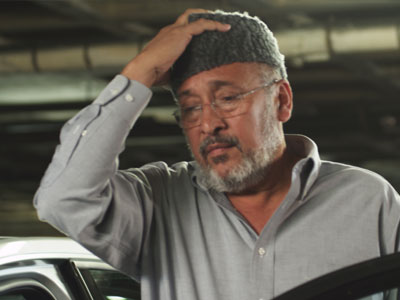
In most cases of corrective rape, the perpetrators are family members because of which the victims refrain from seeking legal recourse. “Victims find it traumatising to speak of their brothers/ cousins turning rapists and prefer to delete the incident from their memories and cut off ties with their families. Which is why such cases almost never get reported,” Vyjayanti says.
Shockingly, it’s all in the family — the parents are in the know, the rapist is usually a relative that is handpicked by them, and it’s like a ‘disciplining project’ designed to ‘cure’ and ‘correct’ the homosexual.
“It’s usually a cousin who’s roped in for this ‘project’. In some communities in South India, marriages amongst cousins are common. Many times, a girl’s parents may decide that she would be married off to a cousin (i.e. her father’s sister’s son or mother’s brother’s son) soon after her birth. Now, if this girl happens to be queer and if it is found out that she is in a relationship with another girl, elders in the family believe having sex with the ‘would-be’, even if it’s forcibly, will cure her,” Vyjayanti explains.
What is Corrective Rape
The use of rape as a tool to correct the sexual orientation of LGBT people with the objective of getting them to toe the societal norms. The term was coined in South Africa where such crimes are rampant. Often it is the family members of the victim who facilitate it.
Hyderabadi girl’s film on corrective rape
Hyderabadi filmmaker Deepthi Tadanki’s upcoming film, Satyavati deals with the subject of corrective rape. The film is based on some “shocking real life instances” that took place in Bangalore. “When I was researching on this subject for my film, I came across two gut wrenching stories of corrective rape — one, where a gay girl was raped by her cousin so that she could be “cured” of homosexuality; and another, where family members forced a gay boy to have sex with his mother, in a bid to turn him ‘straight’. I tried reaching out to these victims, but they refused to talk,” says Deepthi.
Explaining how difficult it is to find statistics for a topic so taboo, Deepthi says, “I wrote to NGOs who work with victims of such hate crimes seeking help with statistics. but to my surprise, not one organisation got back. Many rapes go unreported in India, and it will take years before something like corrective rape even gets talked about. That’s why I wanted to tell this story. I knew it is a sensitive subject, something that has never been dealt with before. I didn’t even have any statistics, but I had the conviction.”
Satyavati talks about a lesbian couple and their straight friend. “When the family members of the ‘straight’ girl visits her, they doubt that she is in an ‘unnatural’ relationship with one of the lesbian girls. And so, they plot a ‘corrective rape’ on their daughter as well as the gay girl,” reveals the 27-year-old Guntur native, who has turned to crowdsourcing to raise funds for the film. “Forty per cent of the film is now complete, but I am facing a financial crunch. I have been trying to crowd source money to complete the rest of the film,” she says, adding, “While lot of people said ‘kudos’ and ‘hats off’, very few are willing to make monetary contribution. But I won’t give up because a discussion on corrective rape needs to be initiated.”


